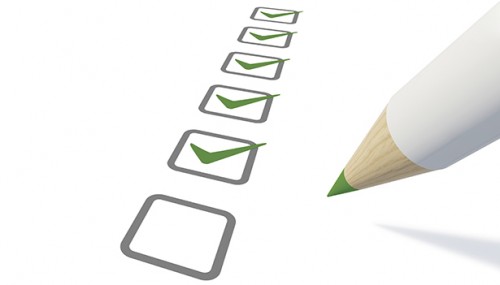
4n6ir.com
Reporting: Benefits of Peer Reviews
by James Habben
Now that you are writing reports to get a personal and professional benefit, let’s look at some other ways that you can get benefits from these time suckers. You need the help of others on this one, since you will be giving your reports to them in seeking a review. You need this help from outside of your little bubble to ensure that you are pushing yourself adequately.

You need a minimum of 2 reviews on the reports you write. The first review is a peer review, and the other is a manager review. You can throw additional reviews on top of these if you have the time and resources available, and that is icing on the cake.
Your employer benefits from reviews for these reasons:
- Reduced risk and liability
- Improved quality and accuracy
- Thorough documentation
There are more personal benefits here too:
- Being held to a higher standard
- Gauge on your writing improvement
- You get noticed
Let me explain more about these benefits in the following sections.
Personal Benefits
Because the main intention of this post is to show the personal benefits and improvements, I will start here.
Higher Standards
The phrase ‘You are your own worst critic’ gets used a lot, and I do agree with it for the most part. For those of us with a desire to learn and improve, we have that internal drive to be perfect. We want to be able to bust out a certain task and nail it 110% all of the time. When we don’t meet our high standards we get disappointed in ourselves and note the flaws to do better next time
Here is where I disagree with that statement just a bit. We can’t hold ourselves to a standard that we don’t understand or even have knowledge about. If you don’t know proper grammar, it is very difficult for you to expect better. Similarly in DFIR, if you don’t know a technique to find or parse an artifact, you don’t know that you are missing out on it.
Having a peer examiner review your report is a great way of getting a second pair of eyes on the techniques you used and the processes you performed. They can review all of your steps and ask you questions to cover any potential gaps. In doing this, you then learn how the other examiners think and approach these scenarios, and can take pieces of that into your own thinking process.
Gauging Your Improvement
Your first few rounds of peer review will likely be rough with a lot of suggestions from your peers. Don’t get discouraged, even if the peer is not being positive or kind about the improvements. Accept the challenge, and keep copies of these reviews. As time goes on, you should find yourself with fewer corrections and suggestions. You now have a metric to gauge your improvement.
Getting Noticed
This is one of the top benefits, in my opinion. Being on a team with more experienced examiners can be intimidating and frustrating when you are trying to prove your worth. This is especially hard if you are socially awkward or shy since you won’t have the personality to show off your skills.
Getting your reports reviewed by peers gives you the chance to covertly show off your skills. It’s not boasting. It’s not bragging. It’s asking for a check and suggestions on improvements. Your peers will review your cases and they will notice the effort and skill you apply, even if they don’t overtly acknowledge it. This will build the respect between examiners on the team.
Having your boss as a required part of the review process ensures that they see all the work you put in. All those professional benefits I wrote about in my previous post on reporting go to /dev/null if your boss doesn’t see your work output. If your boss doesn’t want to be a part of it, maybe its a sign that you should start shopping for a new boss.
http://www.huffingtonpost.com/2014/05/22/challenge-of-management_n_5374820.html
Employer Benefits
You are part of a team, even if you are a solo examiner. You should have pride in your work, and pride in the work of your team. Being a part of the team means that you support other examiners in their personal goals, and you support the department and its business goals as well. Here are some reasons why your department will benefit as a whole from having a review process.
Reduced Risk and Liability
I want to hit the biggest one first. Business operations break down to assets and liabilities. Our biggest role in the eyes of our employers is to be an asset to reduce risk and liability. Employees in general introduce a lot of liability to a company and we do a lot to help in that area, but we also introduce some amount of risk ourselves in a different way.
We are trusted to be an unbiased authority when something has gone wrong, be it an internal HR issue or an attack on the infrastructure. Who are we really to be that authority? Have you personally examined every DLL in that Windows OS to know what is normal and what is bad? Not likely! We have tools (assets) that our employers invest in to reduce the risk of us missing that hidden malicious file. Have you browsed every website on the internet to determine which are malicious, inappropriate for work, a waste of time, or valid for business purposes? Again, not a chance. Our employers invest in proxy servers and filters (assets) from companies that specialize in exactly that to reduce the risk of us missing one of those URLs. Why shouldn’t your employer put a small investment in a process (asset) that brings another layer of protection against the risk of us potentially missing something because we haven’t experienced that specific scenario before?
Improved Accuracy and Quality
This is a no brainer really. It is embarrassing to show a report that is full of spelling, grammar, or factual errors. Your entire management chain will be judged when people outside of that chain are reading through your reports. The best conclusions and recommendations in the world can be thrown out like yesterdays garbage if they are filled with easy to find errors. It happens though, because of the amount of time it takes to write these reports. You can become blind to some of those errors, and a fresh set of eyes can spot things much quicker and easier. Having your report reviewed gives both you and your boss that extra assurance of the reduced risk of sending out errors.
Thorough Documentation
We have another one of those ‘reducing risk’ things on this one. Having your report reviewed doesn’t give you any extra documentation in itself, but it helps to ensure that the documentation given in the report is thorough.
You are typically writing the report for the investigation because you were leading it, or at least involved in some way. Because you were involved, you know the timeline of events and the various twists and turns that you inevitably had to take. It is easy to leave out what seems like pretty minor events in your own mind, because they don’t seem to make much difference in the story. With a report review, you will get someone else’s understanding of the timeline. Even better is someone who wasn’t involved in that case at all. They can identify any holes that were left by leaving out those minor events and help you to build a more comprehensive story. It can also help to identify unnecessary pieces of the timeline that only bring in complexity by giving too much detail.
Part of the Process

Report reviews need to be a standard part of your report writing process. They benefit both you and your employer in many ways. The only reason against having your reports reviewed is the extra time required by everyone involved in that process. The time is worth it, I promise you. Everyone will benefit and grow as a team.
If you have any additional thoughts on helping others sell the benefits of report reviews, feel free to leave them in the comments. Good luck!
James Habben
tags: Report